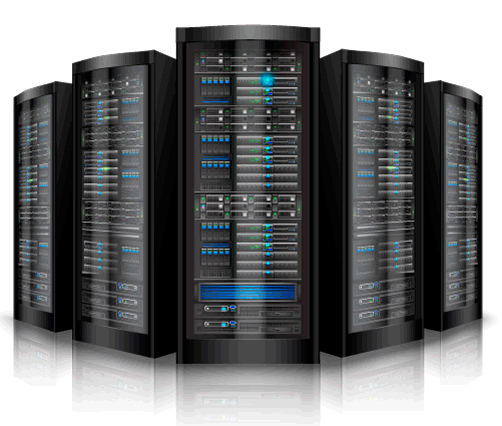Search. Diagnose. Report.
Log data is a definitive record of what’s happening in every business, organization or agency and it’s often an untapped resource when it comes to troubleshooting and supporting broader business objectives.
Splunk® provides the industry-leading software to consolidate and index any log and machine data, including structured, unstructured and complex multi-line application logs. You can collect, store, index, search, correlate, visualize, analyze and report on any machine-generated data to identify and resolve operational and security issues in a faster, repeatable and more affordable way. It’s an enterprise ready, fully integrated solution for log management data collection, storage and visualization.
Ad hoc queries and reporting across historical data can also be accomplished without third-party reporting software. Splunk software supports log data enrichment by providing flexible access to relational databases, field delimited data in comma-separated value (.CSV) files or to other enterprise data stores such as Hadoop or NoSQL. Splunk software supports a wide range of log management use cases including log consolidation and retention, security, IT operations troubleshooting, application troubleshooting and compliance reporting.
- Index, search and correlate any data for complete insight across your infrastructure
- Drill down and up and pivot across data to quickly find the needle in the haystack
- Turn searches into real-time alerts, reports or dashboards with a few mouse clicks
- Securely make operational data available without requiring access to production systems
- Scale from a single server to global datacenters
- Deploy and search across on-premise, hybrid-cloud and private/public-cloud based installations
Why Splunk for Log Management ?
Index and store any machine data regardless of format or location—network and endpoint security logs, malware analysis information, configurations, sensor data, wire data from networks, change events, data from APIs and message queues, and even multi-line logs from custom applications. With no predefined schema, data can be indexed from virtually any source, format or location.
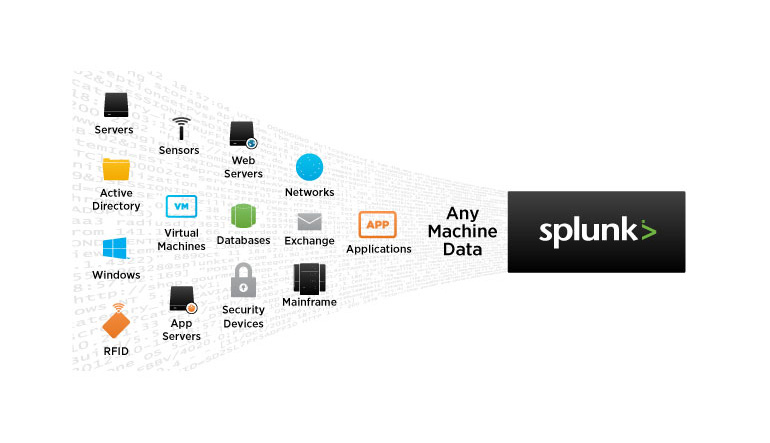
Search real-time and historical data using the same interface. Use familiar search commands to define, limit or widen your search, and correlate events across multiple data sources to reveal new insights. Correlate data based on time, external data, location, sub-searches or joins across multiple data sources. The search assistant offers type-ahead suggestions and contextual help so that you can leverage the full power of the Search Processing Language (SPL™).
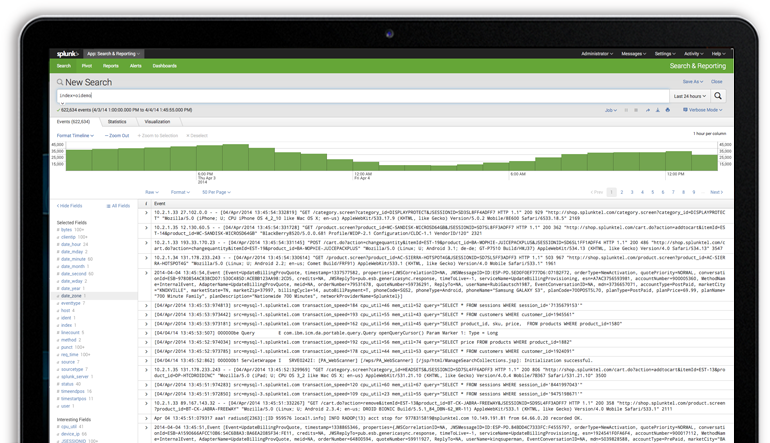
Analyze all data by drilling down, across and back in time quickly using ad-hoc search and timeline controls to quickly reveal trends, spikes and anomalies. Utilize Splunk’s unique field extraction capability to find any value across any field from any data using simple mouse clicks to trace a sequence of events and to quickly find the needle in the haystack. Whether you’re investigating a security alert, responding to an operational outage, or investigating a potential data breach you’ll get to the answer in seconds to minutes rather than hours or days.
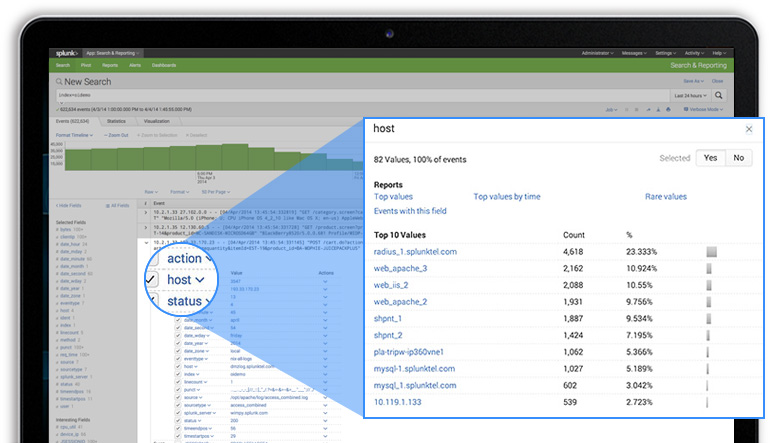
Turn searches into real-time alerts and automatically trigger notifications via email or RSS, generate a ticket at a service desk or execute containment and recovery actions. Alerts can be triggered based on a variety of thresholds, trend-based conditions and other complex searches. Gain additional information at the time of the alert to assist with faster analysis and issue resolution
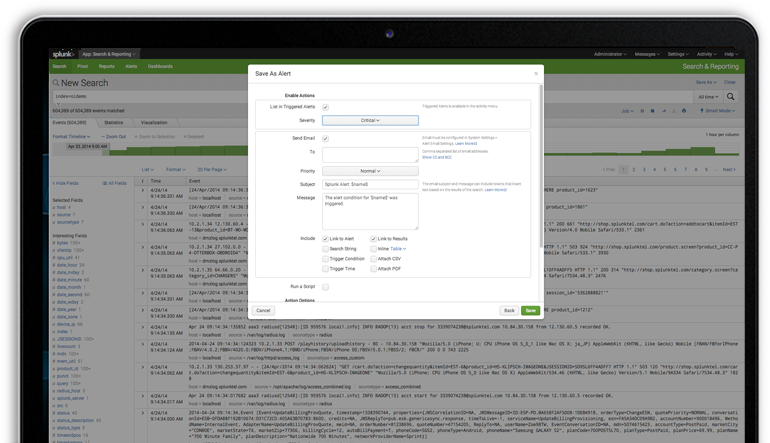
Build reports, advanced graphs and charts to understand important trends, create advanced visualizations, summarize top values and view the frequency of conditions. Create custom dashboards that can integrate multiple charts and views of your real-time data. Analyze your data further with chart overlay and pan and zoom controls. Dashboards can be personalized for anyone and allow users to access them from desktops or mobile devices

